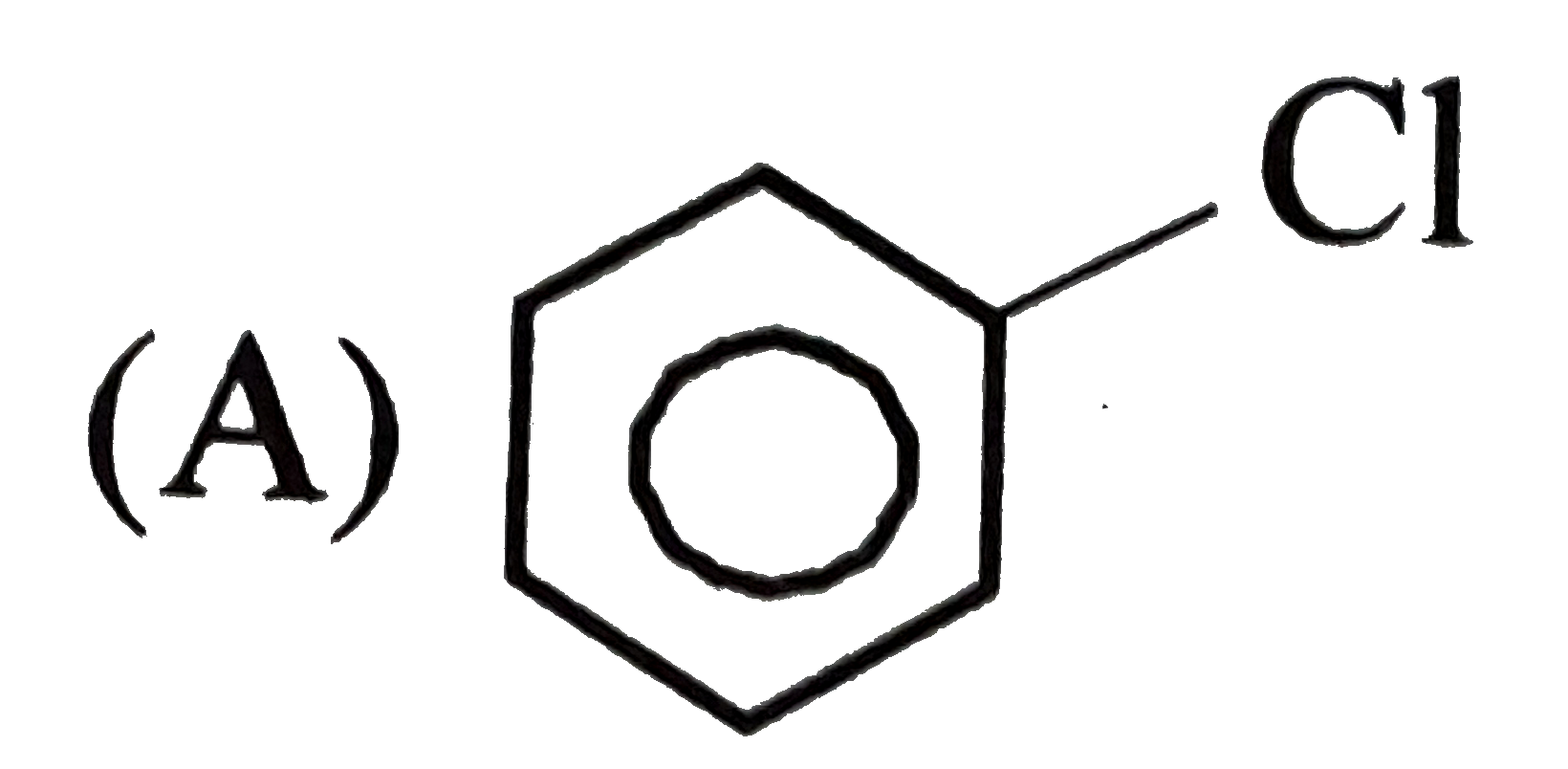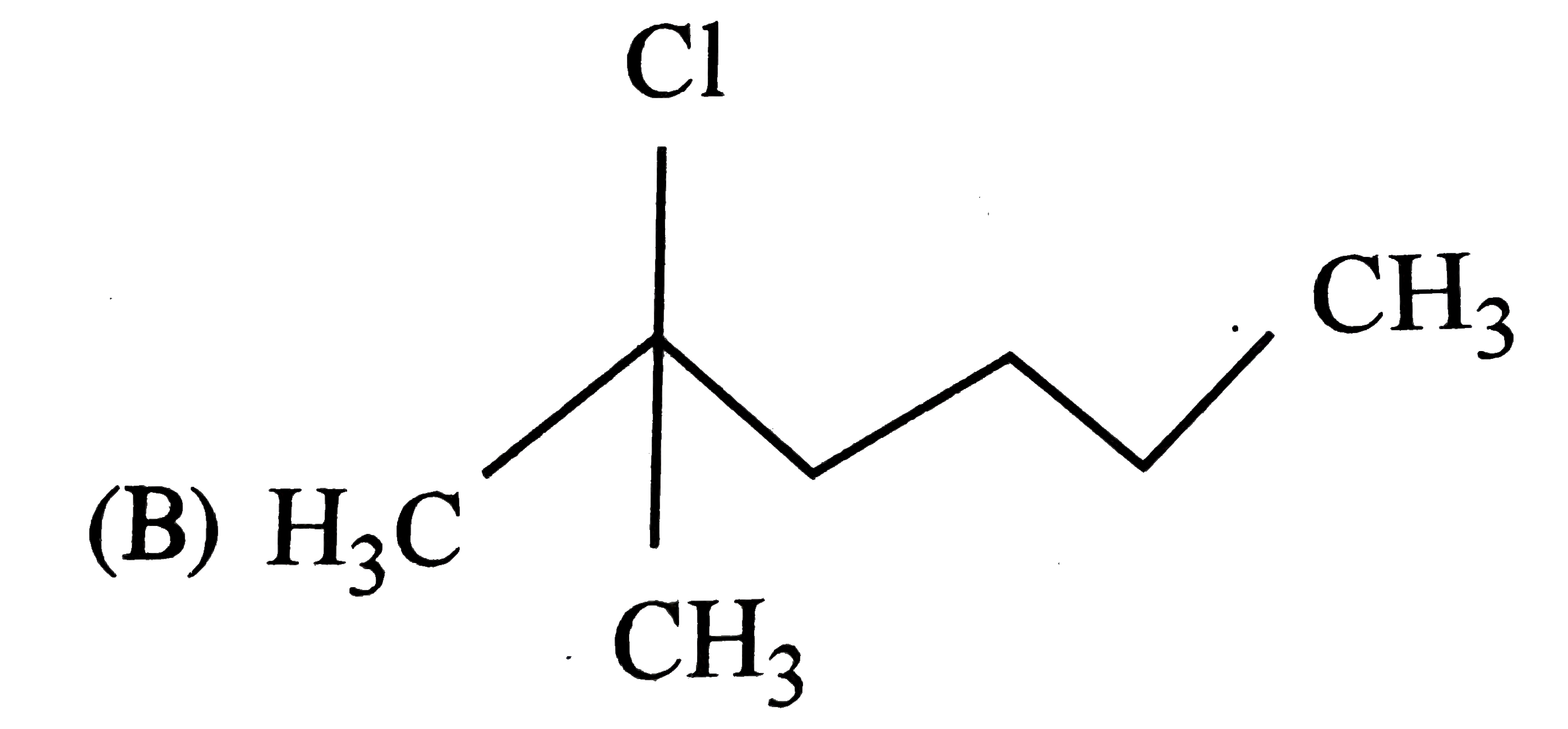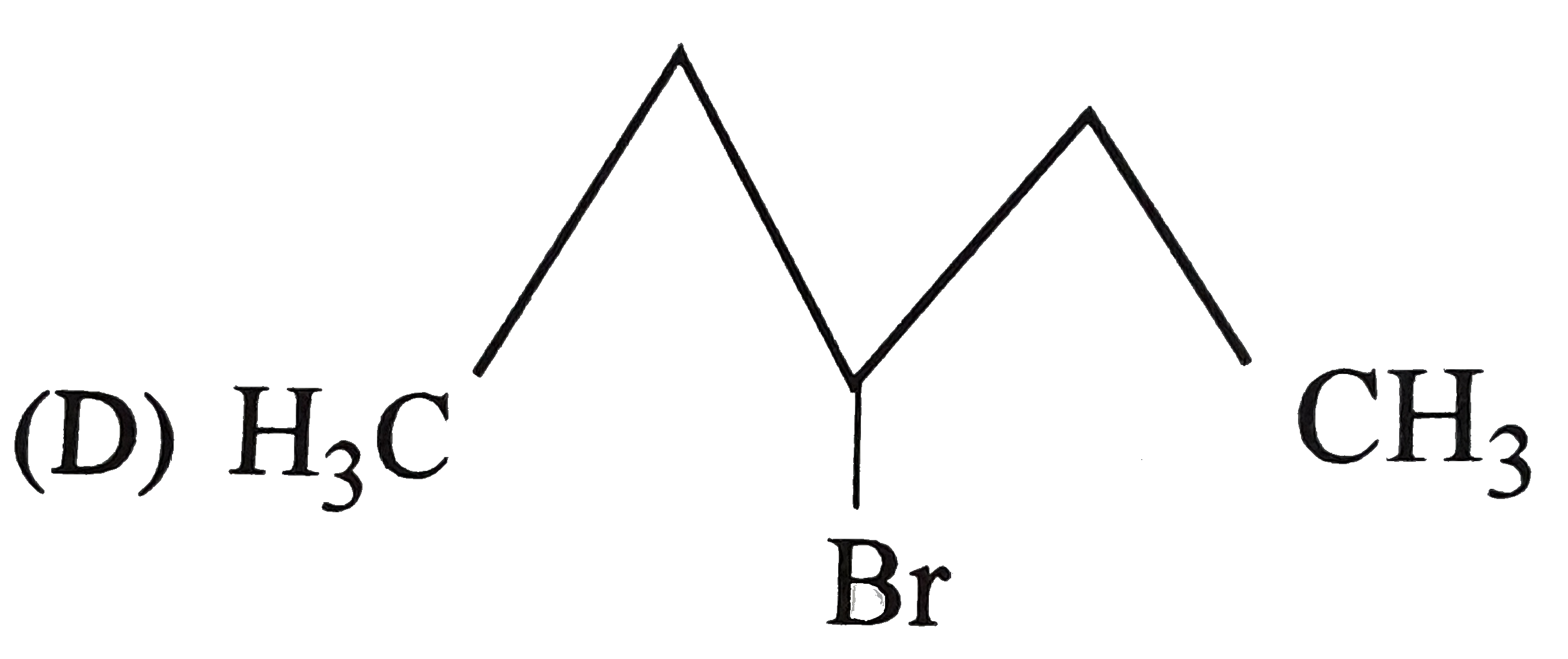Under identical conditions, the SN1 reaction will occur most efficiently with
Tert-butyl chloride
1-chlorobutane
2-methyl-1-chloropropane
2-chlorobutane
The correct Answer is:A
To determine which compound will undergo the SN1 reaction most efficiently, we need to analyze the stability of the carbocations formed during the reaction. The SN1 mechanism involves two main steps: the formation of a carbocation and then the nucleophilic attack. The rate of the SN1 reaction is primarily dependent on the stability of the carbocation formed in the rate-determining step (RDS).
1. Identify the Compounds: We have four compounds to consider:
- Tertiary butyl chloride
- 1-chlorobutane
- 2-methyl-1-chloropropane
- 2-chlorobutane
2. Determine the Carbocation Formed:
- Tertiary butyl chloride: When the chloride ion leaves, it forms a tertiary carbocation, which is stabilized by three alkyl groups.
- 1-chlorobutane: This will form a primary carbocation, which is less stable as it has only one alkyl group.
- 2-methyl-1-chloropropane: This forms a secondary carbocation, which is more stable than a primary but less stable than a tertiary.
- 2-chlorobutane: This will also form a secondary carbocation.
3. Analyze Carbocation Stability:
- Tertiary Carbocation: Most stable due to hyperconjugation and inductive effects from three alkyl groups.
- Secondary Carbocation: More stable than primary but less stable than tertiary.
- Primary Carbocation: Least stable due to having no alkyl groups to stabilize the positive charge.
4. Conclusion: The compound that will undergo the SN1 reaction most efficiently is the one that forms the most stable carbocation. In this case, tertiary butyl chloride forms a tertiary carbocation, which is the most stable among the options provided.
Final Answer:
Tertiary butyl chloride will undergo the SN1 reaction most efficiently.
---
- Tertiary butyl chloride
- 1-chlorobutane
- 2-methyl-1-chloropropane
- 2-chlorobutane
- Tertiary butyl chloride: When the chloride ion leaves, it forms a tertiary carbocation, which is stabilized by three alkyl groups.
- 1-chlorobutane: This will form a primary carbocation, which is less stable as it has only one alkyl group.
- 2-methyl-1-chloropropane: This forms a secondary carbocation, which is more stable than a primary but less stable than a tertiary.
- 2-chlorobutane: This will also form a secondary carbocation.
- Tertiary Carbocation: Most stable due to hyperconjugation and inductive effects from three alkyl groups.
- Secondary Carbocation: More stable than primary but less stable than tertiary.
- Primary Carbocation: Least stable due to having no alkyl groups to stabilize the positive charge.
Tertiary butyl chloride will undergo the SN1 reaction most efficiently.
Similar Questions
Knowledge Check
- Question 1 - Select One
Under identical conditions, the SNl reaction will occur most efficiently with
Atert-butyl chlorideB1-chlorobutaneC2-methyl-1-chloropropaneD2-chlorobutane. - Question 2 - Select One
Most reactive halide towards SN1 reactions is
An-Butyl chlorideBsec-Butyl chlorideCtert-Butyl chlorideDAll chloride - Question 3 - Select One
Which of the following shows SN1 reaction most readily ?
A B
B C
C D
D
Which one is most reactive towards SN1 reaction?
View SolutionAssertion:SN2 reactions proceed with inversion of configuration
Reason: SN2 reactions occur in one step .View SolutionIdentify the reaction conditions for the following reaction to occur
 View Solution
View SolutionSN1andSN2 reactions are
View SolutionThe compound which undergoes SN1 reaction most rapidly is :
View Solution

